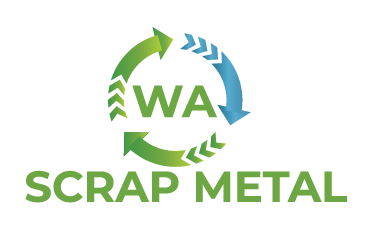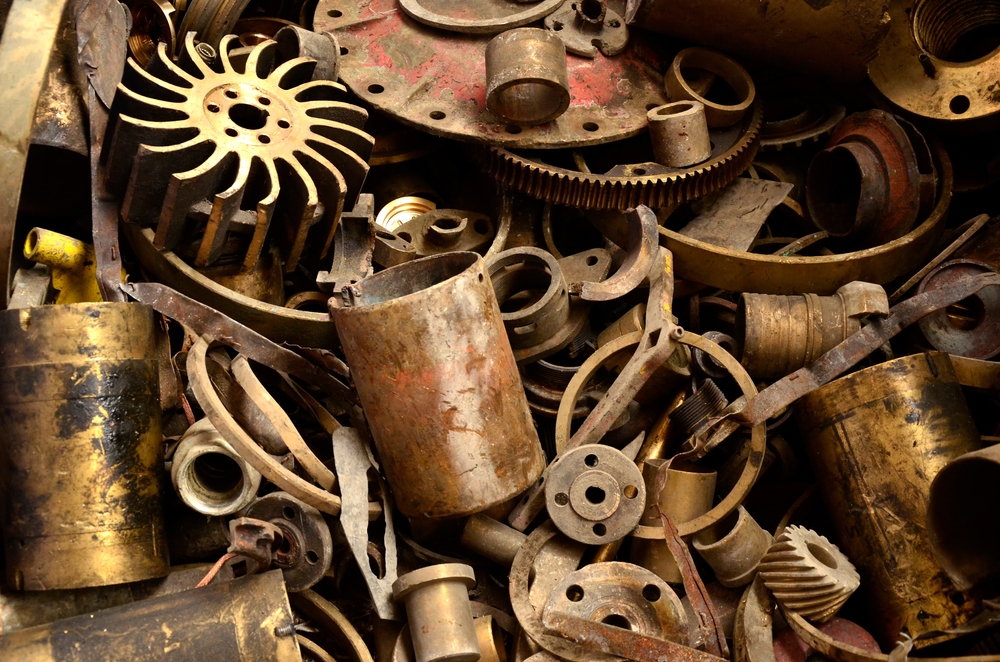Surprising Facts About the Recycling Process of Brass Scrap
At WA Scrap Metals, we’re passionate about responsible metal recycling. We believe that by giving scrap metal a second life. We can all contribute to a greener future.
Brass is a beautiful alloy of copper and zinc. It is a prime example of a highly recyclable metal. But there’s more to brass scrap recycling than meets the eye. Here are some surprising facts about this eco-friendly metal.
1. Brass Is 100% Recyclable [Forever]
Unlike some metals that degrade with each recycling cycle. Brass retains its properties, and it can be recycled forever.
This means that the same piece of brass scrap can be melted down, reformed, and reused over and over again. This endless loop reduces the need to mine new resources, minimizing harmful environmental impact.
2. Recycling Brass Saves 90% Energy
Mining virgin brass ores requires a huge amount of energy. Recycling, on the other hand, uses a small part of that energy.
In fact, estimates suggest that recycling brass uses up to 90% less energy compared to mining virgin metal. This translates to a smaller carbon footprint.
3. Different Types of Brass Have Different Values
Brass comes in various grades. Depending on the specific zinc content. Common types include yellow brass (high zinc content) and red brass (more copper).
Separating these grades is necessary for maximizing the value of your scrap brass. Here’s a table to help you differentiate betweenthe most common brass types:
Common Types of Brass Categorized by Colour
| Colour | Zinc Content | Name | Common Uses |
| Yellowish Gold | High (33-39%) | Yellow Brass | Doorknobs, plumbing fixtures, electrical components |
| Reddish Brown | Low (5-15%) | Red Brass | Valves, pipes, fire sprinkler systems |
| Pale Gold | Very High (40-45%) | Cartridge Brass | Ammunition casings, decorative items |
| Gold with Greenish tinge | High (around 35%) | Naval Brass | Marine hardware, components exposed to saltwater |
| White | Very High (around 45%) | White Brass | Keys, screws |
4. Not All Brass is Same: Look Out for Contaminants
While brass itself is highly recyclable. Certain contaminants can affect its value. Here are some things to avoid mixing with your scrap brass.
- Iron: Iron can make the brass brittle and unusable.
- Lead: Lead is a hazardous material that requires special handling.
- Oil and Grease: These can make the recycling process more difficult.
5. Everyday Brass Items Are Easily Recyclable
Don’t underestimate the recycling potential of everyday brass items lying around your house. Some examples include:
- Keys that no longer work
- Old doorknobs and cabinet hardware
- Discarded plumbing fixtures like faucets and valves
- Decorative items like picture frames and statues (as long as they are made of pure brass)
6. Big or Small, Brass Scrap is Valuable in All Sizes
Whether you have a pile of plumbing pipes or a single broken doorknob. All brass scrap has value. WA Scrap Metals accepts brass in all shapes and sizes.
7. Recycling Brass Benefits Local Economy
Recycling brass isn’t just good for the environment.It’s good for the economy too. By creating a stable source of recycled brass. We reduce reliance on mining virgin materials as well as create jobs in the recycling industry.
8. BrassScrap Recycling is Super Simple
The basic steps of brass recycling are simple and effective.
- Collection: Scrap brass is collected from various sources like households, construction sites, and industrial facilities.
- Sorting: Different grades of brass are separated based on their level of purity.
- Shredding:Next, the brass is shredded into smaller pieces for easier processing.
- Melting: The shredded brass is melted in a furnace at high temperatures to clean the brass.
- Refining: Impurities are removed from the molten brass.
- Shaping and Casting: The molten brass is poured into moulds to create new shapes like ingots or sheets.
9. From Scrap Brass to Shiny New Products
The applications of recycled brass are many. The newly formed brass products are ready for use in a wide range of industries. From construction and manufacturing to musical instruments and decorative items.Here are some of the examples:
- Ammunition casings
- Electrical components
- Decorative items and sculptures
- New plumbing fixtures and hardware
- Musical instruments like trumpets and trombones
10. Scrap Brass Is High Demand Metal & Gives a Good Payout
Brass recycling can offer a good payout. Brass is a valuable metal with a steady market demand. This translates to competitive prices offered by scrap metal yards.
Here are some tips to get the best payout for your brass scrap:
- Clean Up Your Brass: Remove any dirt, oil, or grease from your brass to ensure a higher quality grade.
- Separate Different Types:Knowing the type of brass you have (yellow, red, etc.) can increase its value.
- Know the Market Price: Check online resources or contact WA Scrap Metals to get an idea of current brass scrap prices.
Let’s Protect Our Resources & Environment
Not sure where to start? Simply search online for “scrap metal near me” or “scrap metal Perth“. You’ll find WA Scrap Metalsconveniently located in Perth.Ready to assist you with all your brass scrap recycling needs.
WA Scrap Metals is one of the leading scrap metal dealers Perth.We’re committed to making the brass recycling process easy and profitable. We offer competitive pricing for your brass scrap and ensure responsible and eco-friendly recycling.
So, gather your unwanted brass items. Bring them to WA Scrap Metals. And become a part of recycling for a sustainable future.
Remember, every piece of recycled brass makes a difference.
Recycle Scrap Brass – Get FREE Quote
Brass FAQs
1. Does recycled brass rust?
No, recycled brass itself won’t rust. Brass is an alloy. It’s a mixture of copper and zinc metals. Copper has excellent rust resistance.It protects the brass from forming rust.
But if the brass is contaminated with iron.The iron component can rust. So, while recycled brass itself is rust-proof.It’s always a good idea to remove any mixed iron objects with scrap brass.
2. Is brass worth more than iron?
Yes, brass is worth more than iron for scrap metal recycling. This is because brass is a valuable alloy with various industrial and decorative uses. Iron, while also recyclable, is more abundant and has a lower market value.
3. Should I clean brass before scrapping?
Yes. Cleaning brass maximizes its value. Dirt can hide the type of brass. Knowing the specific type of brass (e.g., yellow brass, red brass) helps decide its scrap value. Also, contamination complicatesthe recycling process. Clean brass melts more efficiently. It reduces processing costs for recycling facilities.


